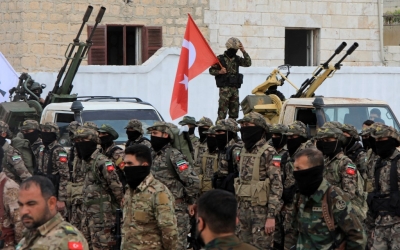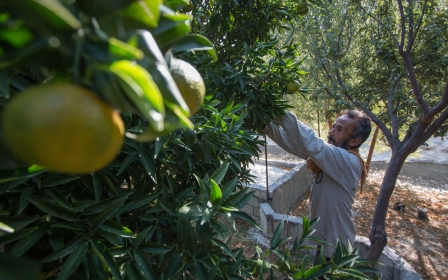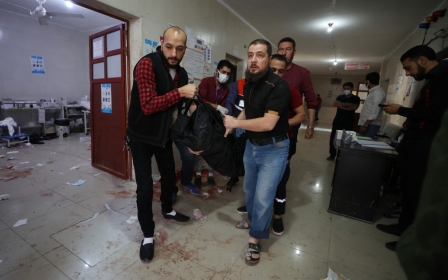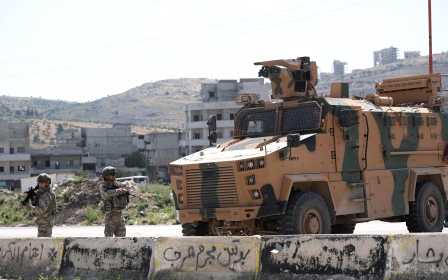Syria: Five members of same family killed in Idlib air strikes
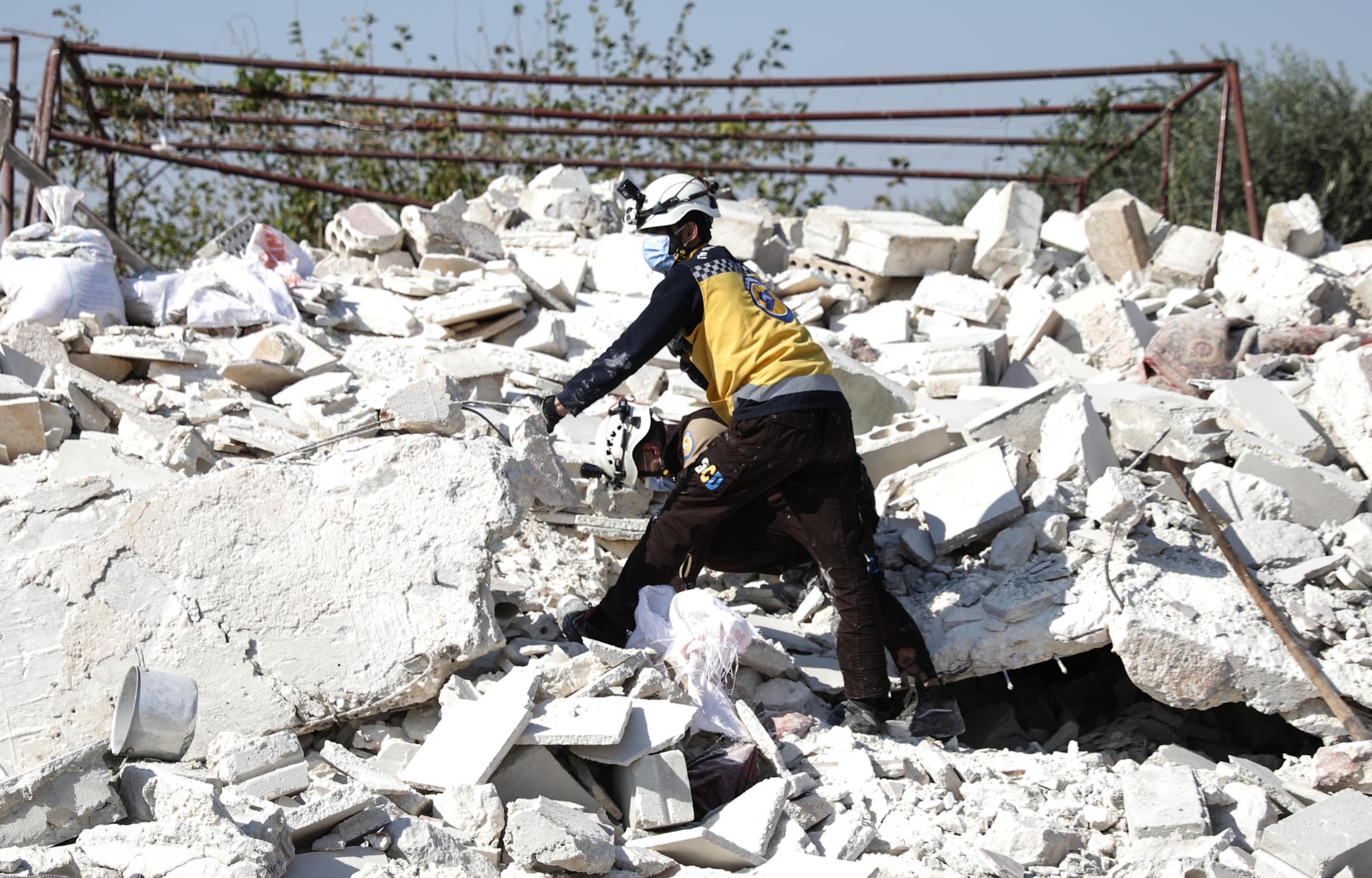
Five civilians from the same family, including three children and one woman, were killed and six others wounded in air strikes in northwestern Syria on Thursday, according to human rights monitors and rescue teams on the ground.
Three Russian air attacks in opposition-held territory targeted a poultry farm housing displaced people on the outskirts of Maarrat Misrin, north of the city of Idlib, according to the White Helmets, a group of volunteers who help civilians during such attacks.
New MEE newsletter: Jerusalem Dispatch
Sign up to get the latest insights and analysis on Israel-Palestine, alongside Turkey Unpacked and other MEE newsletters
The team posted footage showing the first moments of the attack, with screaming women hiding among trees and carrying away dead children crushed under the rubble.
“The attack targeted an... area where there are only displaced civilians,” Hatem al-Shab, a civil defence officer, told Middle East Eye. “When we arrived, the scene was very tragic and the children were dying under the rubble.”
“It took more than an hour to rescue the six injured from the rubble: all the dead from the same family, a father, his wife and his children, resulting in a nervous breakdown for one of their relatives,” he added.
No safe place
"We were displaced from southern Aleppo province two years ago. The family moved between several cities and villages until they settled here because they thought it was a safe place,” Shaaban al-Jassim, a cousin of the family, told MEE.
“The father of the family thought he was going to get a job raising chickens in this building,” he added.
“We were sitting safely and suddenly we heard the sound of planes flying over us and then the attack began. I don't know where we will go now and how we will find a safe place in this area.”
Idlib is the last stronghold of the armed opposition, with a population of 3.1 million people, according to the United Nations Office for the Coordination of Humanitarian Affairs. It has been under a ceasefire since March of last year, supervised by Turkey, an ally of the opposition, and Russia, an ally of the Syrian government forces.
The previous ceasefire ended a bloody offensive that led to the displacement of about one million civilians to the Syrian-Turkish border. But repeat violations of the agreement have resulted in numerous civilian deaths.
Turkey and Russia are currently negotiating to stage a Turkish military operation in the Syrian border town of Kobane to clear Syrian Kurdish YPG units there, sources familiar with the issue recently told MEE.
Ongoing violations
Previous violations focused on the strategic area of Jabal al-Zawiya, south of Idlib, which government forces are trying to seize by military or political means to open the strategic M4 road linking the cities of Latakia and Aleppo, which are under its control.
According to the Syrian Network for Human Rights (SNHR), a Paris-based activist group, about 20 civilians were killed in government attacks on Idlib last month. SNHR said in a 44-page report monitoring the violations last month that the region had been hit by 10 attacks on vital centres, including markets and schools.
“Today's massacre confirms that Russia continues its military support for the Syrian regime and is not open to political solutions that guarantee solving the crisis of millions of displaced civilians, inside and outside the country,” Fadel Abdul Ghany, chairman and founder of SNHR, told MEE.
"This massacre is a disgrace to states that are trying to restore their relationship with the regime that is using its forces to kill its people. Normalisation with this system means approving regime crimes, and Russia's crimes documented by UN reports," he added.
Countries restoring ties with Syria's Bashar al-Assad "are saying to the world that they agree with his crimes”.
Restoring relations with Assad
Yesterday, Algeria renewed its call to return Syria to the Arab League. The Algerian minister of foreign affairs and international cooperation called for non-interference in Syria's internal affairs.
In statements to local media, the minister said that it was time for Syria to return to the League of Arab States, saying it was key for the upcoming Arab summit in Algeria.
This came a day after the UAE Foreign Minister Abdullah bin Zayed visited Damascus, in the first visit of its kind since the start of the Syrian war in 2011.
Zayed and Assad discussed bilateral relations, according to the Syrian news agency SANA, among other things.
The United States reacted to the meeting by urging states in the region to carefully consider "atrocities" perpetrated by Assad, according to Reuters.
"We are concerned by reports of this meeting and the signal it sends," State Department spokesperson Ned Price said at a press briefing. "As we've said before, this administration will not express any support for efforts to normalise or to rehabilitate Bashar al-Assad, who is a brutal dictator."
"The UK remains firmly opposed to normalisation and urges all states to consider the untold suffering that the regime has inflicted on the Syrian people," the UK special representative for Syria Jonathan Hargreaves said on Twitter.
Middle East Eye delivers independent and unrivalled coverage and analysis of the Middle East, North Africa and beyond. To learn more about republishing this content and the associated fees, please fill out this form. More about MEE can be found here.


